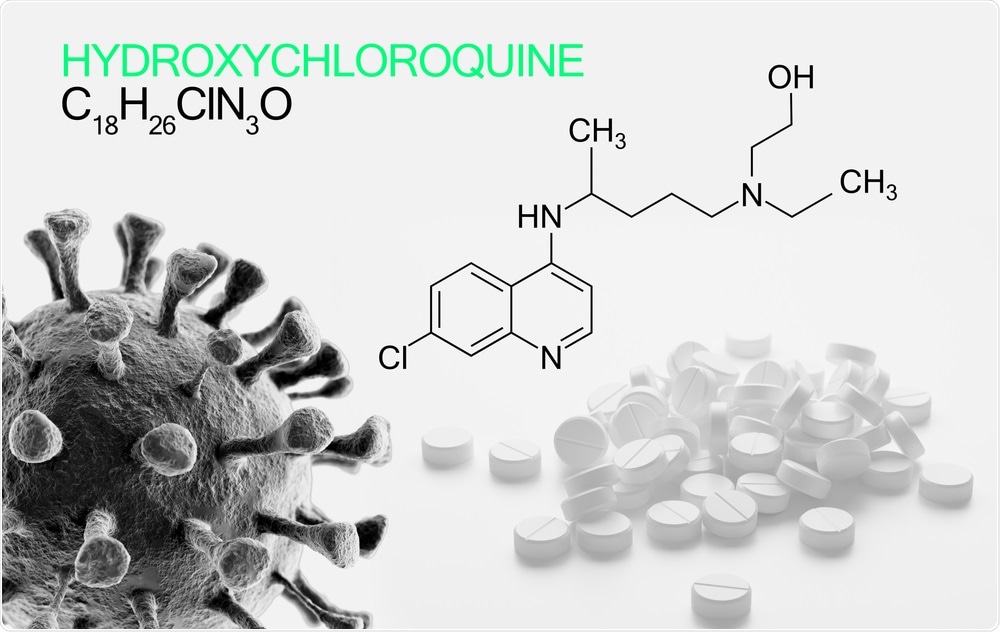The coronavirus disease (COVID-19) has rippled across the world with a devastating effect. As scientists raced to find an effective treatment for patients, existing malaria and rheumatoid arthritis drug hydroxychloroquine became one of the most popular candidates.

Image Credit: Creativeneko / Shutterstock
The Solidarity Trial controversy
The controversy heightened when the journal issued an erratum on the first published study, citing concerns about the reliability of the database.
The journal and the company, Sugisphere, has received a backlash from scientists across the globe. A letter was formulated by more than 200 scientists and health experts asking for a review of the said paper.
The health experts raised doubts about how Surgisphere, whose founder Sapan Desai was a co-author of the study, obtained data from hospitals across the globe. They also pointed out that the data on the paper were inconsistent with government figures.
The Lancet study claimed to have analyzed Surgisphere data collected from nearly 96,000 patients with COVID-19 who were admitted to 671 hospitals from their database of 1,200 hospitals across the globe. The patients received hydroxychloroquine alone or in combination with antibacterial drugs. The data showed that hydroxychloroquine had been tied to cardiac abnormalities, and even death, which prompted the WHO to suspend the trial.
An independent audit of the data's validity has now been commissioned by the authors who are not part of the Surgisphere.
Resuming trials
Now, the WHO has retracted its decision and announced that the clinical trial would resume as it searches for potential coronavirus treatments.
The WHO said it will continue the Solidarity Trial, which aims to see the effect of hydroxychloroquine on COVID-19 patients.
The Data Safety and Monitoring Committee of the Solidarity Trial has been reviewing the data since it was halted. Based on their findings and evaluation, the members of the committee recommended that there are no reasons to modify the trial data, and all trials should continue.
"The Data Safety and Monitoring Committee will continue to closely monitor the safety of all therapeutics being tested in the Solidarity Trial. So far, more than 3,500 patients have been recruited in 35 countries," Dr. Tedros Adhanom Ghebreyesus, WHO's director-general, said.
New data on hydroxychloroquine
A new study has shown that hydroxychloroquine is ineffective in preventing infection in people exposed to the severe acute respiratory syndrome coronavirus 2 (SARS-CoV-2). Though the new trial found no serious side effects or heart problems linked to the use of the drug, it did not prevent the development of COVID-19 any better than a placebo.
The trial results, which were published in the New England Journal of Medicine, showed that 40 percent of the trial participants taking the drug developed non-serious side effects, including abdominal pain, diarrhea, and nausea. However, the trial found no severe side effects or any cardiac complications from taking hydroxychloroquine.
Among the participants, 12 percent of those given the drug developed COVID-19, compared to 14 percent in the vitamin placebo (folate) group.
Global figures
The race for finding an effective treatment for COVID-19 is on, as the numbers of infections skyrocket. The global death toll has reached more than 391,000, while there are 6.63 million confirmed cases. The United States still runs as the country with the highest number of infections, surpassing 1.87 million, with at least 108,000 deaths.
Brazil has seen a rapid increase of confirmed cases, now surpassing 614,000 people and at least 34,000 deaths. The South American nation is facing the ordeal of controlling the spread of the virus, as the health system has been overwhelmed.
The United Kingdom has also reported a high fatality rate, with more than 39,000 deaths and a total of 283,079 confirmed cases.
Of the total number of infections, more than 2.85 million people have recovered.
Sources:
Journal references: